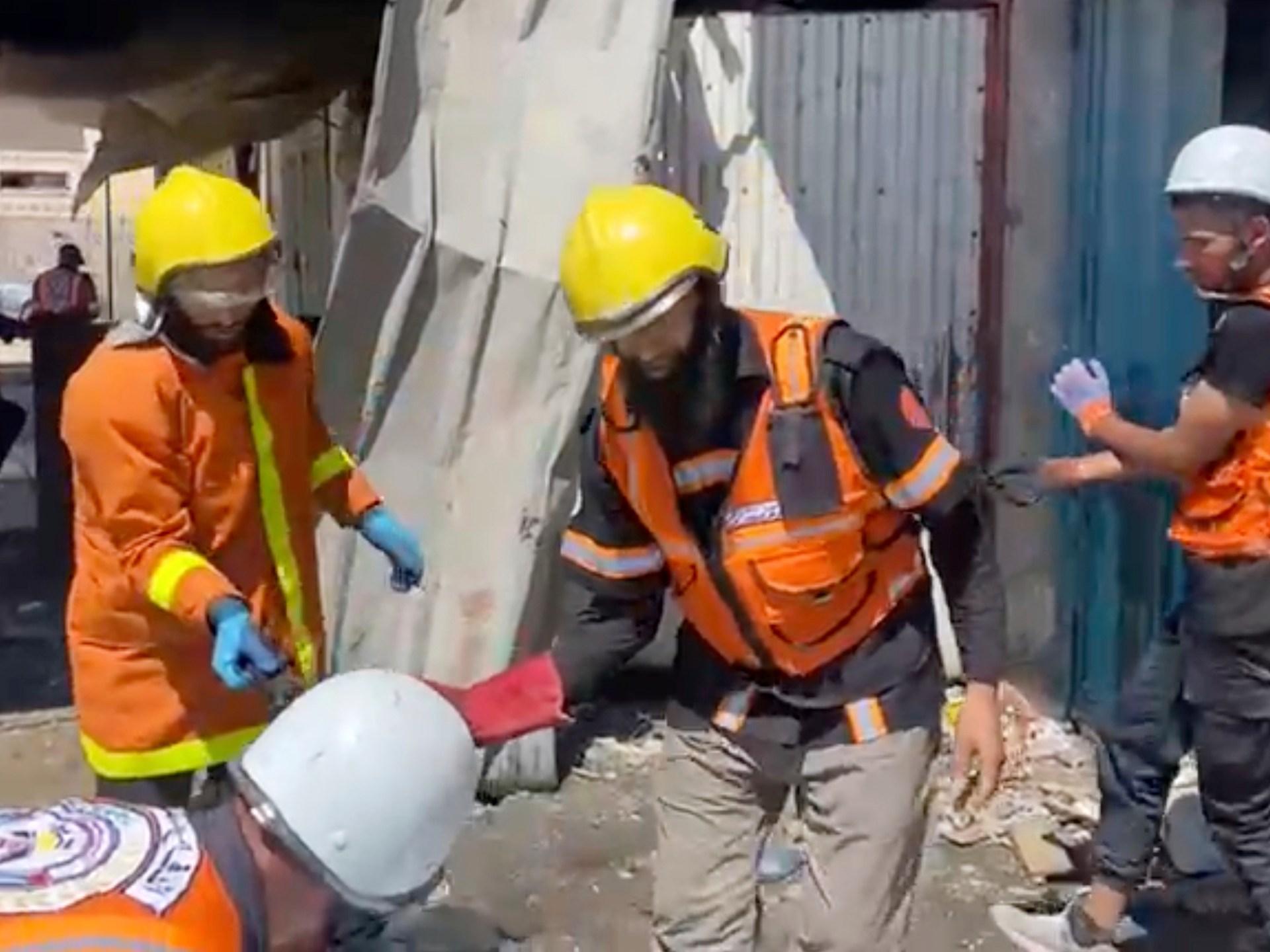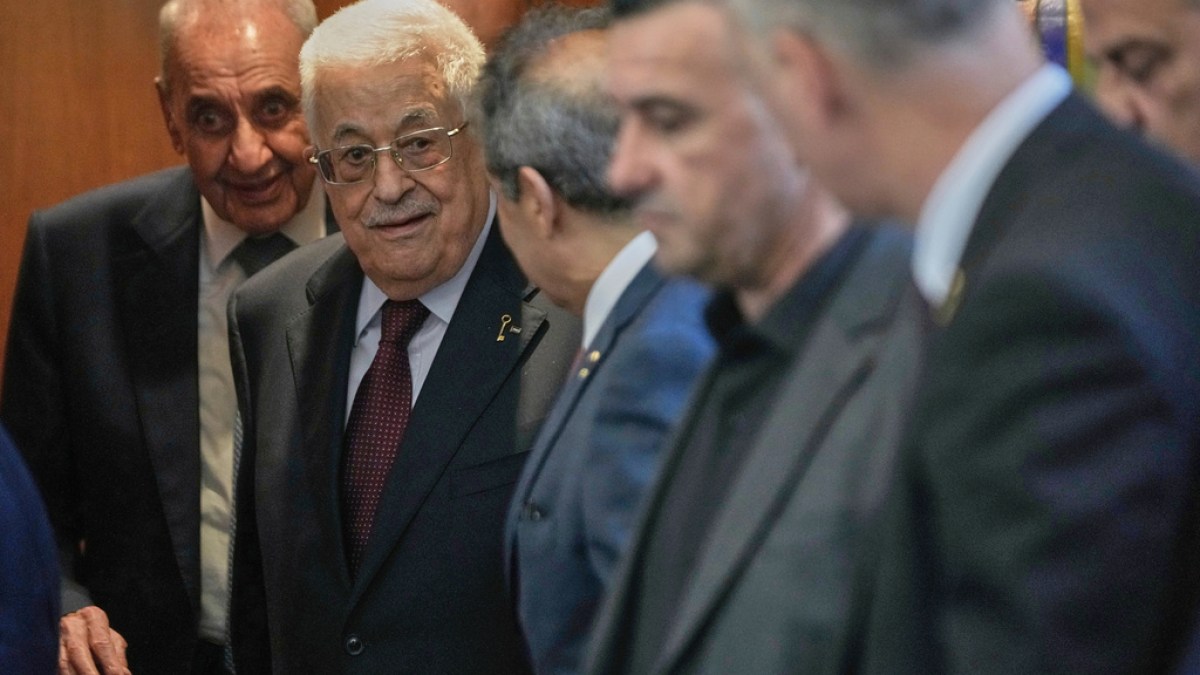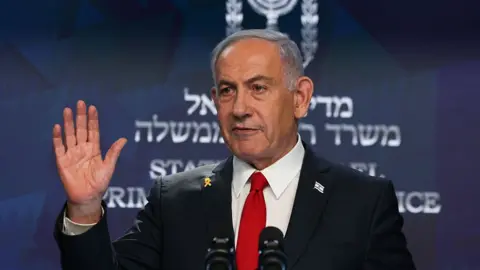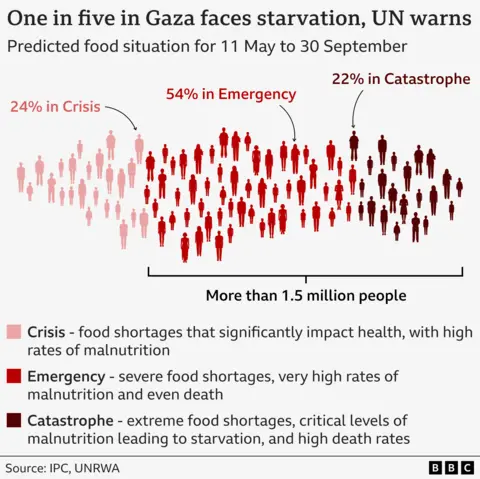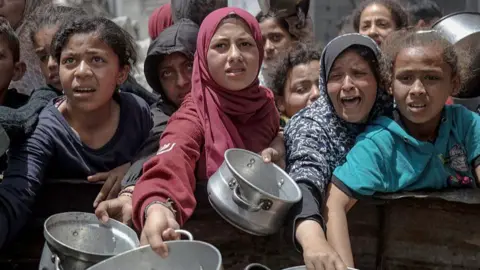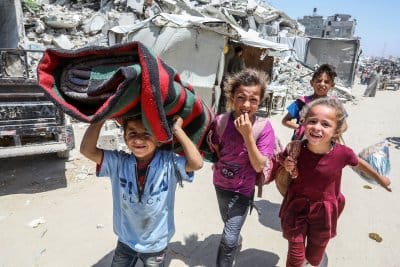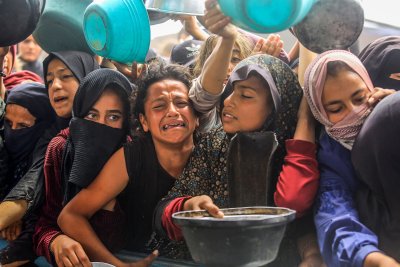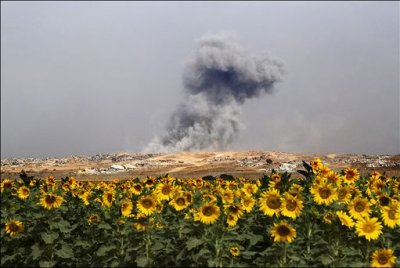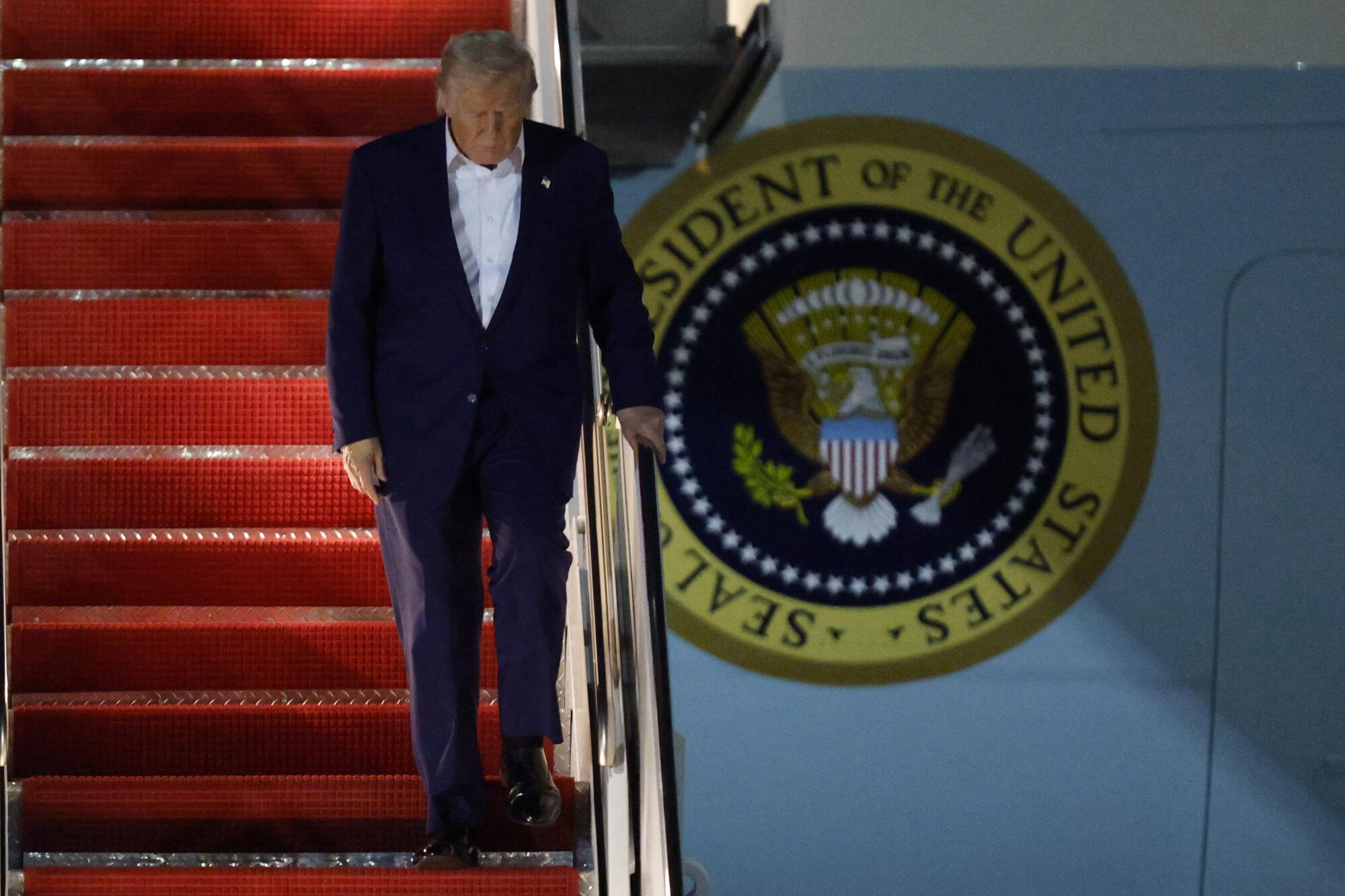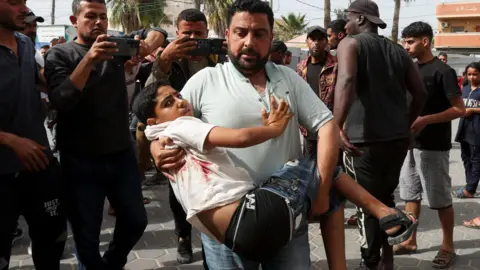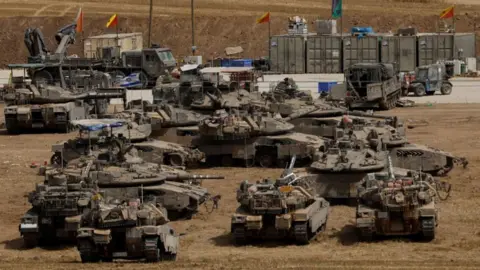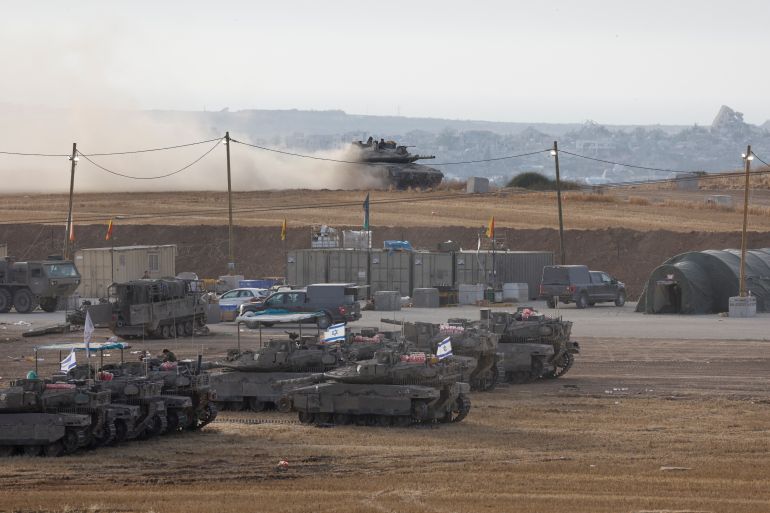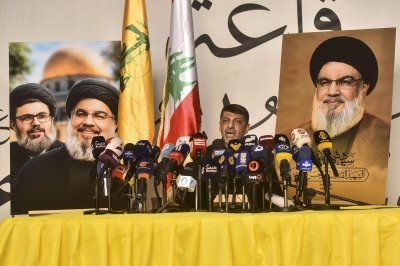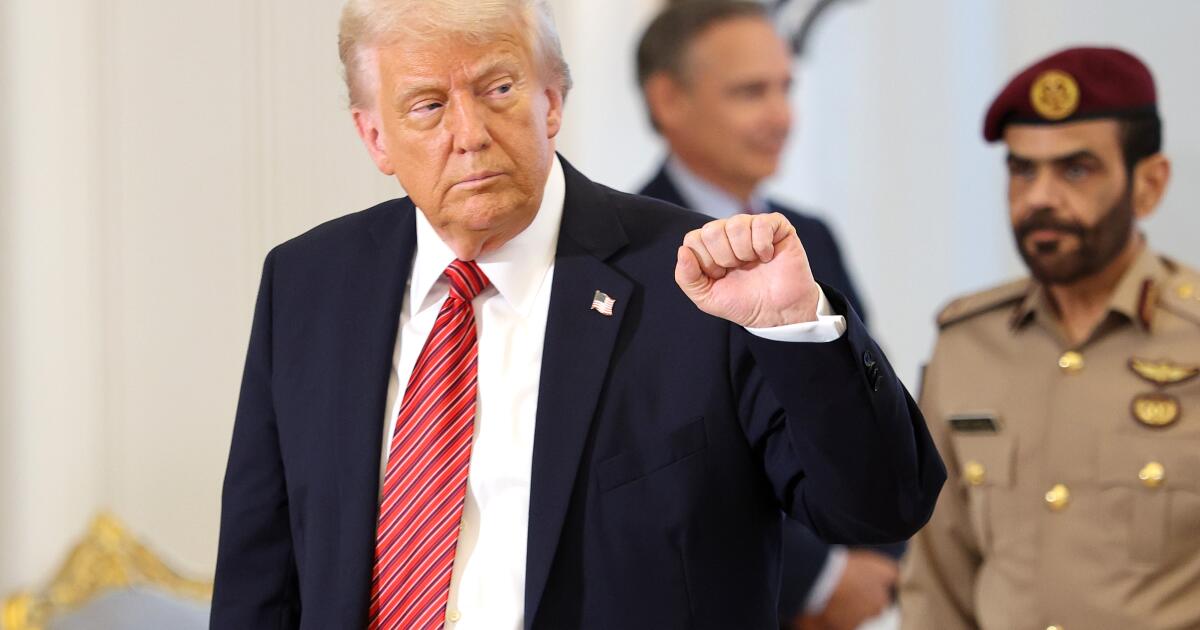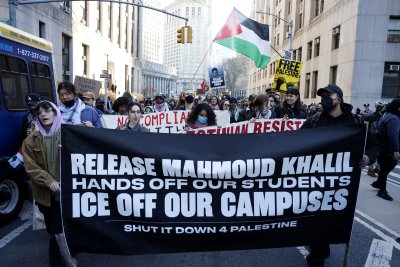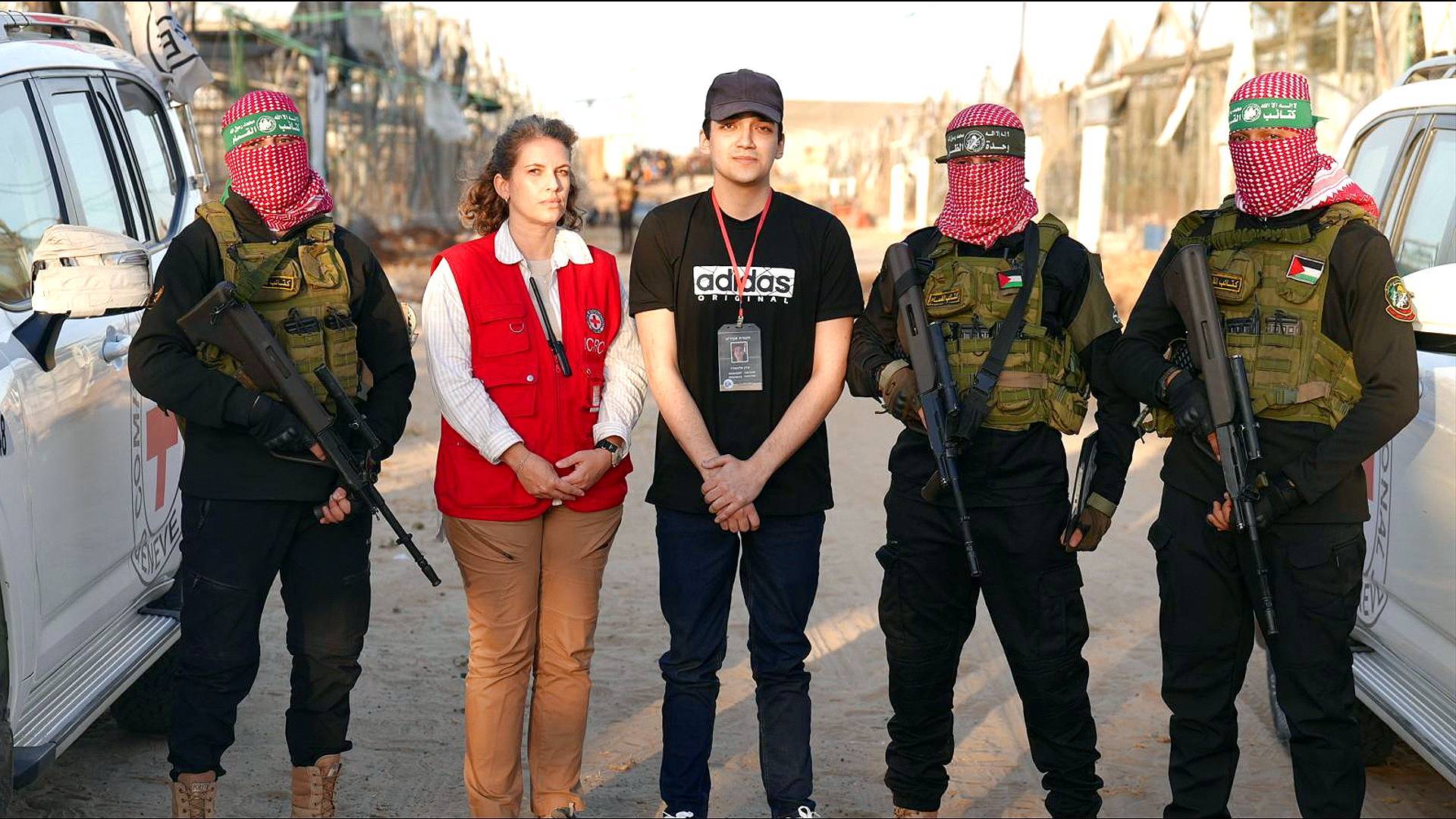Hamas has released Edan Alexander, a dual United States-Israeli national and soldier, as it seeks to revive ceasefire negotiations and an end to Israel’s punishing blockade on the besieged and bombarded Gaza Strip.
The International Committee of the Red Cross (ICRC) confirmed on Monday evening that it had facilitated the soldier’s transfer. An image was released showing Alexander with Hamas members and a Red Cross official.
Hamas said it had released Alexander as a goodwill gesture towards US President Donald Trump, who is visiting Arab Gulf nations this week.
Fighting briefly stopped to allow for the handover after Israeli Prime Minister Benjamin Netanyahu said Israel would permit safe passage for the release.
“Edan Alexander, American hostage thought dead, to be released by Hamas. Great news!” Trump wrote on his Truth Social platform.
“The government of Israel warmly welcomes soldier Sergeant Edan Alexander who has been returned from Hamas captivity,” a statement from Netanyahu’s office said.
“The government of Israel is committed to the return of all hostages and missing persons – both the living and the fallen,” the statement added. Families of the captives have accused Netanyahu of putting his own political survival above that of the captives still held in Gaza.
In a statement, ICRC President Mirjana Spoljaric welcomed Alexander’s release while calling for a lasting ceasefire in Gaza.
“We are relieved that one more family has been reunited today. This nightmare, however, continues for the remaining hostages, their families, and hundreds of thousands of civilians across Gaza,” Spoljaric said.
Alexander’s mother reportedly arrived in Israel on Monday and was flown to the Re’im military base, where the two were expected to be reunited later in the evening, according to Al Jazeera’s Hamdah Salhut, reporting from Amman, Jordan, because Al Jazeera is banned from Israel.
Despite the release, Israel has made no commitment to a broader ceasefire. “There’s nothing in exchange, no release of Palestinian prisoners, no pause in the fighting,” Salhut said. “If there are going to be any sort of negotiations, they’re going to happen under fire,” Salhut added, referring to the Israeli government’s prevailing line.
Akiva Eldar, an Israeli political analyst, said Alexander’s release has spurred joy as well as frustration in Israel. “What we see is that what President Trump can do, Netanyahu is not able – or not willing – to do,” he told Al Jazeera from Tel Aviv.
The Israeli prime minister has faced widespread calls to end the Gaza war to secure the captives’ release but has said he plans to expand Israel’s offensive.
“Today is a crucial point,” Eldar explained. “Because the Israeli public is aware of the fact that if you want a deal, if you want your sons back at home, you can do it. But for that, you have to be a leader like President Trump and not like Netanyahu.”
Release changes little for devastated Palestinians
Al Jazeera’s Hind Khoudary, reporting from Deir el-Balah in central Gaza, said there seems to be no change forthcoming in Palestinians’ daily suffering: “Palestinians are devastated. They’re exhausted. Palestinian families are unable to feed their children. They’re saying their children are going to bed hungry.”
“The IPC [Integrated Food Security Phase Classification] report issued today said 93 percent of Gaza’s population is living through acute food insecurity. This is because of the blockade that has been imposed on the Gaza Strip,” Khoudary said.
“Palestinians are asking, ‘What’s next? What is this release going to bring? Are there any positive negotiations? Is there any glimpse of hope of a ceasefire?’” she added.
And the bombardment continues, Gaza’s Ministry of Health said an Israeli strike on a school-turned-shelter killed at least 15 people on Monday.
Gaza on brink of famine
Humanitarian organisations have warned that Gaza is on the verge of mass starvation. The IPC reported that half a million Palestinians face imminent famine.
According to the IPC, 70 days after Israel blocked entry of essential supplies, “goods indispensable for people’s survival are either depleted or expected to run out in the coming weeks.”
The head of the UN’s World Food Programme, Cindy McCain, urged immediate international action. “Families in Gaza are starving while the food they need is sitting at the border,” she said. “If we wait until after a famine is confirmed, it will already be too late for many people.”
Catherine Russell, Executive Director of UNICEF, also issued a stark warning. “The risk of famine does not arrive suddenly,” she said. “It unfolds in places where access to food is blocked, where health systems are decimated, and where children are left without the bare minimum to survive.”
Hunger, she added, has become “a daily reality for children across the Gaza Strip”.
Gaza assault set to continue
Netanyahu and his hardline government remain committed to escalating the military campaign in Gaza.
Far-right National Security Minister Itamar Ben-Gvir, a key coalition partner, reiterated his position that the war must continue and humanitarian aid should be blocked from entering the territory.
“Israel has not committed to a ceasefire of any kind,” Netanyahu’s office said in a statement, claiming military pressure had compelled Hamas to release Alexander. Critics have countered that the release came about purely because of direct US contacts with Hamas.
Netanyahu met US figures, including Trump envoy Steve Witkoff and Ambassador Mike Huckabee, on Monday. His office described the meeting as a “last-ditch effort” to push forward a captive-release deal before the fighting widens.
Huckabee said Trump and his administration “hope this long-overdue release” of Alexander “marks the beginning of the end to this terrible war”.
Israel plans to send a delegation to Doha on Tuesday for talks but made clear military operations would persist. “The prime minister made it clear that negotiations would only take place under fire,” his office said.
